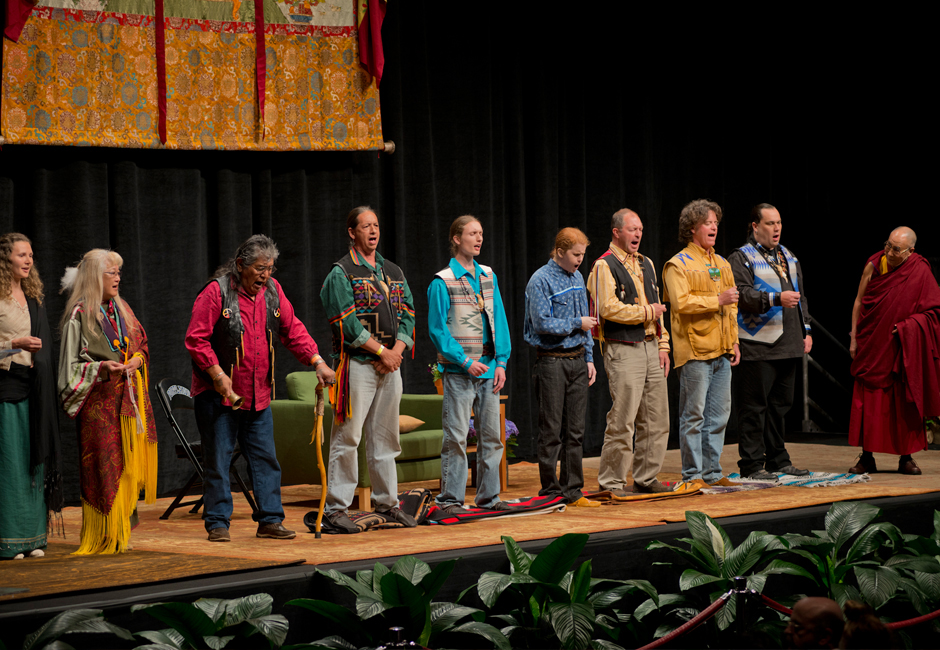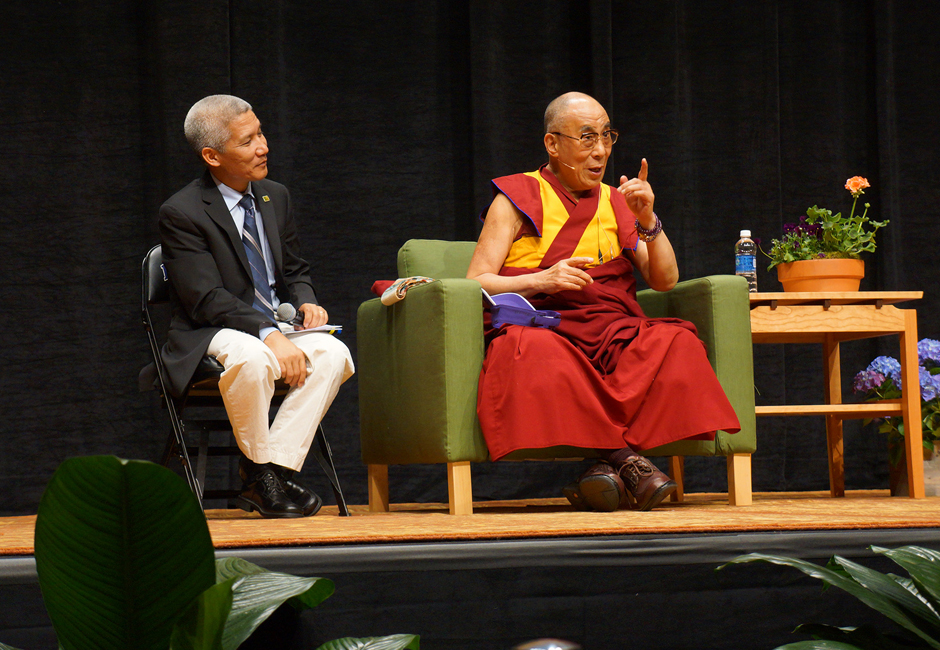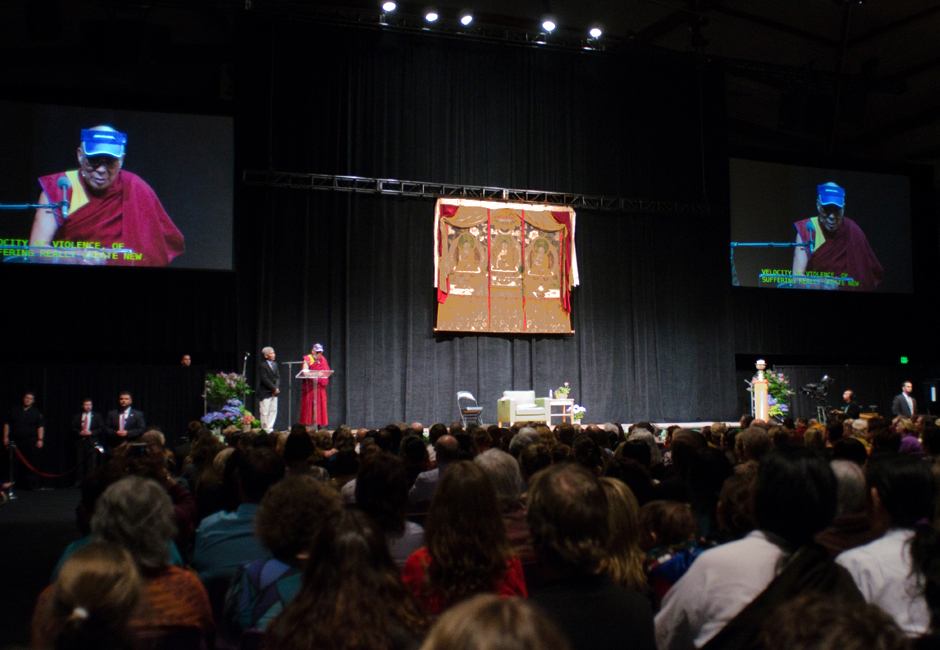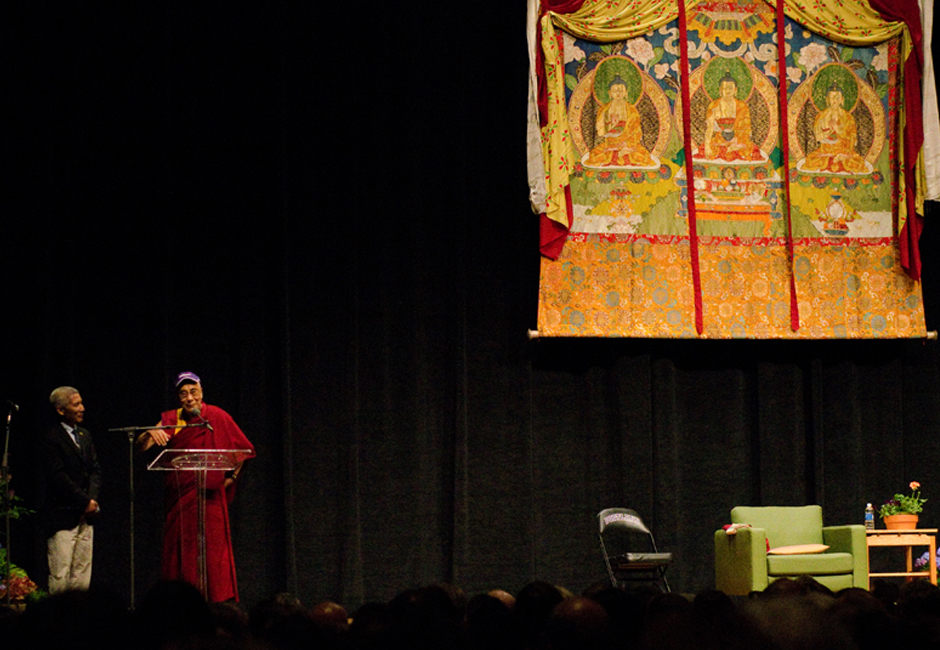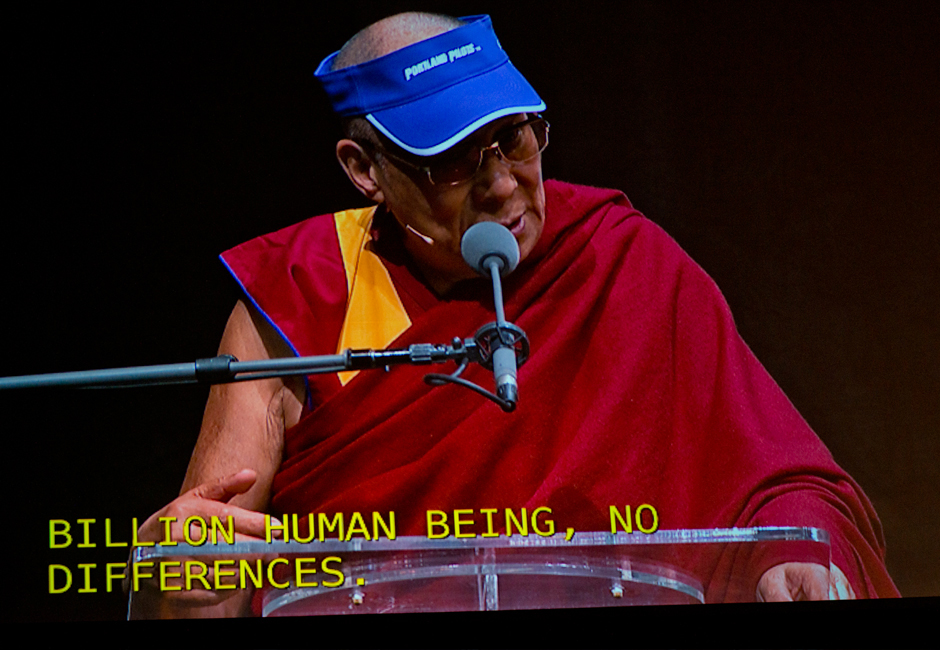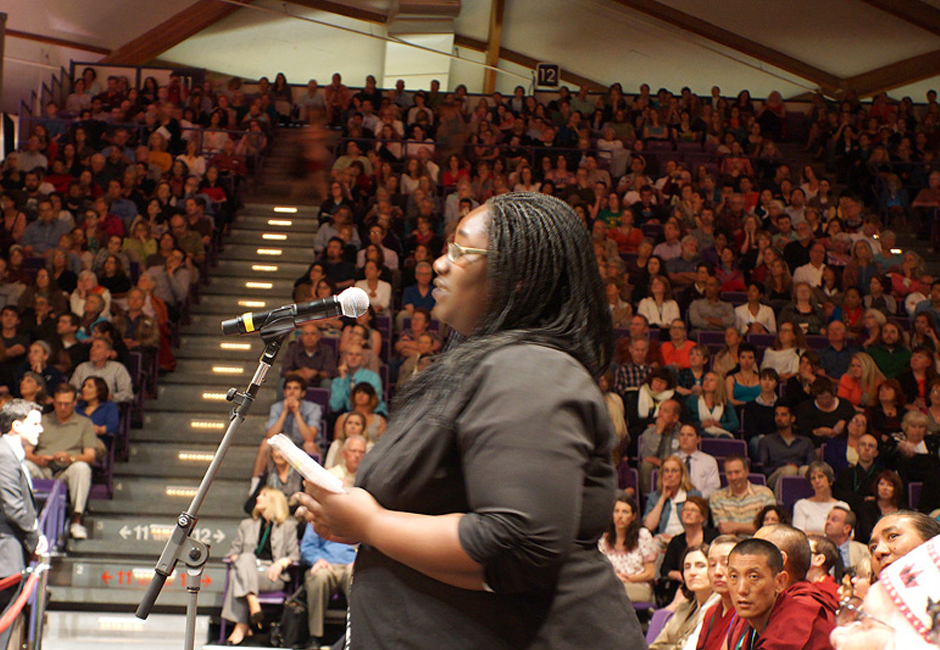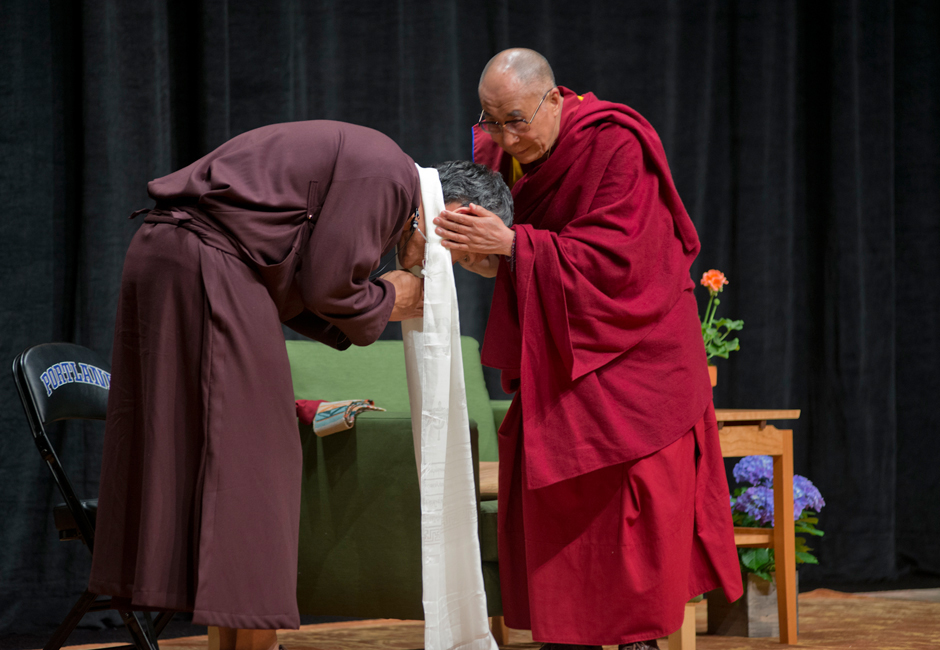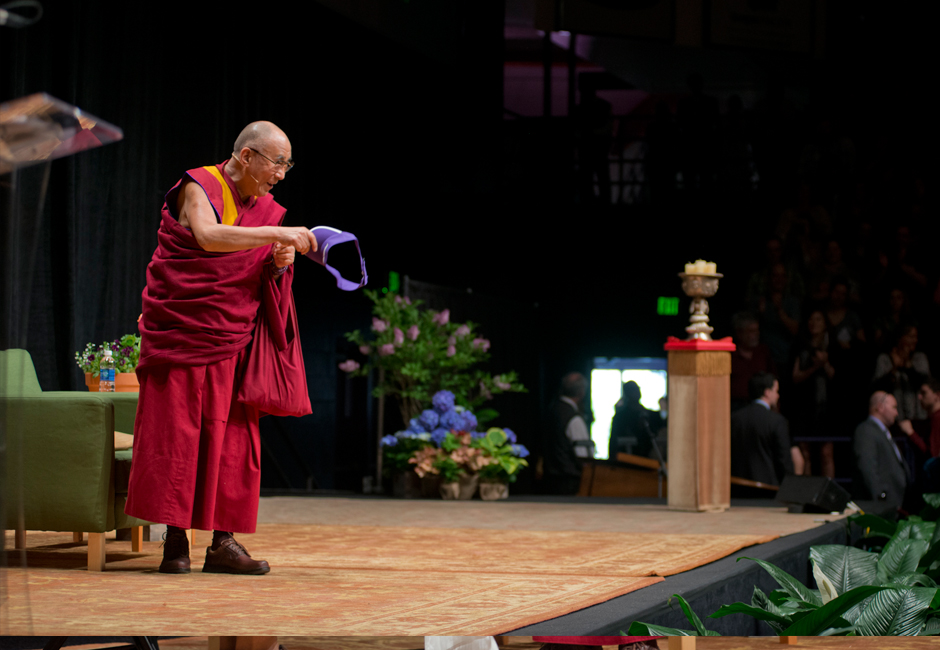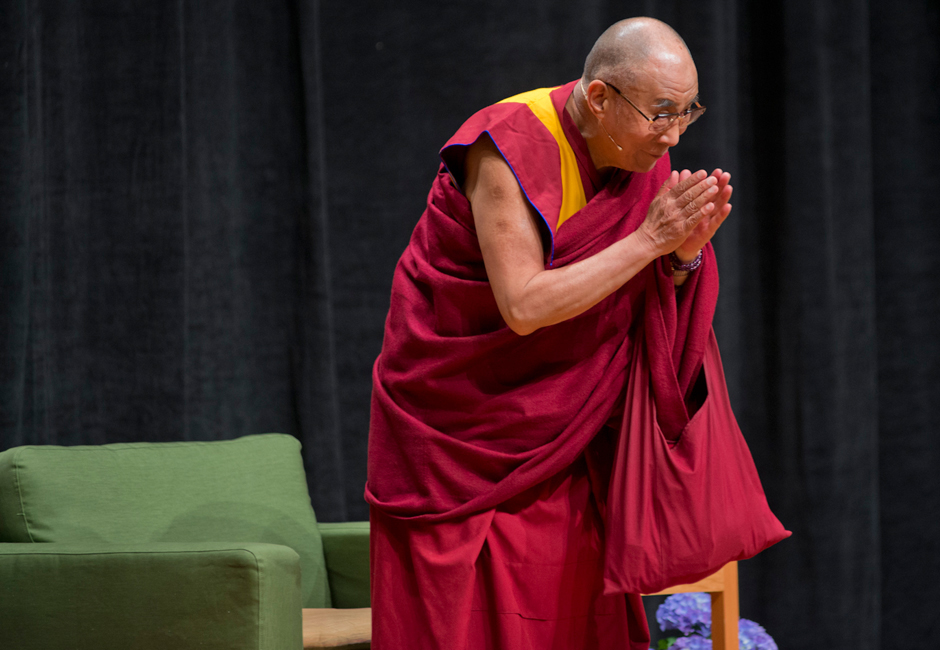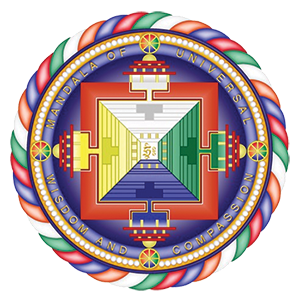On the first day of the historic visit to Portland by His Holiness in 2013, following the morning interfaith panel at the Chiles Center of the University of Portland, the afternoon opened with a Tibetan Cultural Performance by Tsering Lodro and a Native American Cultural Performance by Roy Hayes & the 7-Drum Drummers. A public talk by His Holiness entitled Universal Responsibility and the Inner Environment: The Nature of the Mind was followed by questions and answers.
View video: Universal Responsibility & the Inner Environment, the Nature of Mind
View photos of the day’s activities
A report on the afternoon public talk at the University of Portland
(source: the Office of His Holiness the Dalai Lama)
Portland, Oregon, USA, 10 May 2013 – On the first day of the 3-day Environmental Summit activities in Portland, participants in the interfaith meeting were invited to a luncheon at the President’s house, at the end of which His Holiness was again asked for his thoughts. He said:
“I’m very glad to have come to this city once more; this morning’s session, in the spirit of religious brotherhood, was very good. We need to repeat this in Africa, the Arab world and the Middle East. My brain enjoyed the meeting, my body enjoyed the lunch; thank you.”
Mayor of Portland, Charlie Hales, in his introduction to the afternoon session, pointed out that whereas other cities have parks within them, Portland, surrounded by mountains, forests and rivers, is a city within a park itself, and an ideal place to talk about the natural environment. However, wanting also to know how to work on the ways we treat one another, he requested His Holiness to speak.
“Dear brothers and sisters,” His Holiness began, “it’s a great honour to speak to you. Although I can see a great variety of faces and dress among you, I always stress the oneness of humanity.
“Most of the conflicts between us are our own creation, man-made problems. Well, some are women-made too, but violence tends to be more of a male problem. Our problems are linked to our dwelling on the secondary differences between us. We 7 billion human beings are the same mentally, emotionally and physically. We all want to live a happy life and avoid trouble; and we all have a right to do so. As social animals, our sense of community has a lot to do with this. Today, the global economy with its benefits and drawbacks goes far beyond national boundaries or religious divides. Problems like climate change affect us all.”
He mentioned that while the twentieth century was a period of unprecedented bloodshed, we should learn from it and make the twenty-first century an era of peace. It is not that there will no longer be any problems to resolve, but instead of force we should resort to dialogue in every instance. Peace can only be achieved through non-violence. This is something we have to train and educate our children to put into effect.
What is required is a sense of secular ethics, which is related to training and disciplining our minds and emotions. We need to develop a map of the mind. Just as we observe physical hygiene to keep ourselves healthy, we also need a sense of emotional hygiene to ensure the health of our minds.
His Holiness advised one questioner that change in the world comes from individuals, from the inner peace in individual hearts. Just as ripples spread out when a single pebble is dropped into water, the actions of individuals can have far-reaching effects. Another student asked how we can engage in dialogue with those who do not want to talk and His Holiness argued that if we seek reconciliation with patience and forgiveness other people will change. Regarding the natural environment, many people may still be uninformed and unaware of the issues involved. The solution is education.
Yangsi Rinpoche, founder of Maitripa College, the principal organiser of the day’s events, concluded the occasion with thanks to His Holiness for coming and with wishes for his long life.

